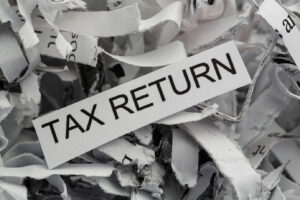April 5, 2023
Shredding Tax Documents: How to Safely Dispose of Sensitive Financial Information

Tax season is a stressful time for many, and it’s important to make sure that financial records are managed correctly and securely. This includes properly disposing of sensitive documents, such as tax returns and other financial records. Shredding these documents is an effective way to ensure that your information is not accessed by unauthorized individuals or entities. Here’s a guide to shredding tax documents so that you can safely dispose of sensitive financial information.
Understanding What to Shred
The first step to shredding tax documents is to understand what kind of information should be shredded. Generally speaking, any documents that contain sensitive financial information should be shredded. This includes tax returns, W2s, receipts, credit card statements, bank statements, and more.
Organizing Tax Documents for Shredding
Once you’ve identified which documents need to be shredded, it’s important to organize them in order to make the shredding process more efficient. Start by sorting the documents into categories such as tax returns, receipts, bank statements, etc. Once the documents have been sorted, it’s a good idea to create a list of the documents that need to be shredded. This will help you keep track of what documents have been shredded and which ones still need to be shredded.
Since the IRS generally recommends keeping tax returns and associated documents for a 3 years, it is also important to organize your documents by year. Taking a few organizational steps, will make it simple to know what to shred and when.
To learn if you need to keep tax records longer than 3 years, refer to this section on the IRS Website – Period of Limitations that apply to income tax returns.
Where to Shred Your Documents
While it might seem simple and convenient to purchase your own personal shredder, there are companies in the Indianapolis area where you can take your documents to be shred. It is important to research out-sourced shredding services to assess price and understand their shredding process. Not only can costs vary widely, but the method in which your documents are collected and stored versus shred immediately can differ. Some will let you observe your documents being shred, while others will just take your documents and put in a secure area for shredding later in bulk. Whichever type of company you choose, be sure to check how securely your documents are kept while waiting to be shred. As an added bonus, consider using a shredding company that recycles the paper once shredded.
Final Thoughts on Shredding Tax Documents
Shredding tax documents is an important step in ensuring that sensitive financial information is not accessed by unauthorized individuals or entities. By understanding what documents need to be shredded, organizing the documents, and choosing a reliable shredding company, you can safely dispose of sensitive financial information.
